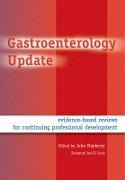Read more
List of contents
Alcoholic liver disease. Managing liver failure. Modern management of oesphageal varices. Liver transplantation for chronic liver disease: advances or controversies in a era or organ shortages. Managing of gastrointestinal haemorrhage. Evaluation and treatment of dyspepsia. Acid suppression in gastro-oesophageal reflux disease: why? How? How much and when? Surveillance in Barrett's oesophagus: a personal view. Occupation and gastric cancer. Hereditary haemorrhagic telangiectasia: a view from the 21st Century. Neurological complications of celiac disease. Management of irrital bowel syndrome. A lay doctor's guide to the inflammatory process in the gastrointestinal tract. Inflammatory bowel disease in pregnancy. Chronic inflammatory bowel disease in children: a complex problem in management. Chemotherapy for upper gastrointestinal tumours. Management of colorectal cancer. Cholesterol gallstones: from epidemiology to prevetion. Non-steroidal anti-inflammatory drugs and gastrointestinal damage - problems and solutions. Management of inflammatory bowel disease.
Summary
This edition has been written to provide general practitioners with an easy-to-use guide to the management of the vast majority of emergencies. The first contact a GP has with an emergency case is almost always a telephone call, and the advice then given by the doctor is of paramount importance in the subsequent management of the case. A feature of the book is that each topic begins with advice on how to handle the initial telephone call. Each problem is then approached logically with notes on assessment, advice and management necessary when the patient is seen. The emphasis is on practical primary care, with discussion of differential diagnosis taken as far as is needed to decide the best immediate course of action. The book should be useful for the practising GP to use by the telephone, in the car or on his rounds. It can also be used as a teaching text for GP trainees, and a reference for hospital doctors doing GP locums.

